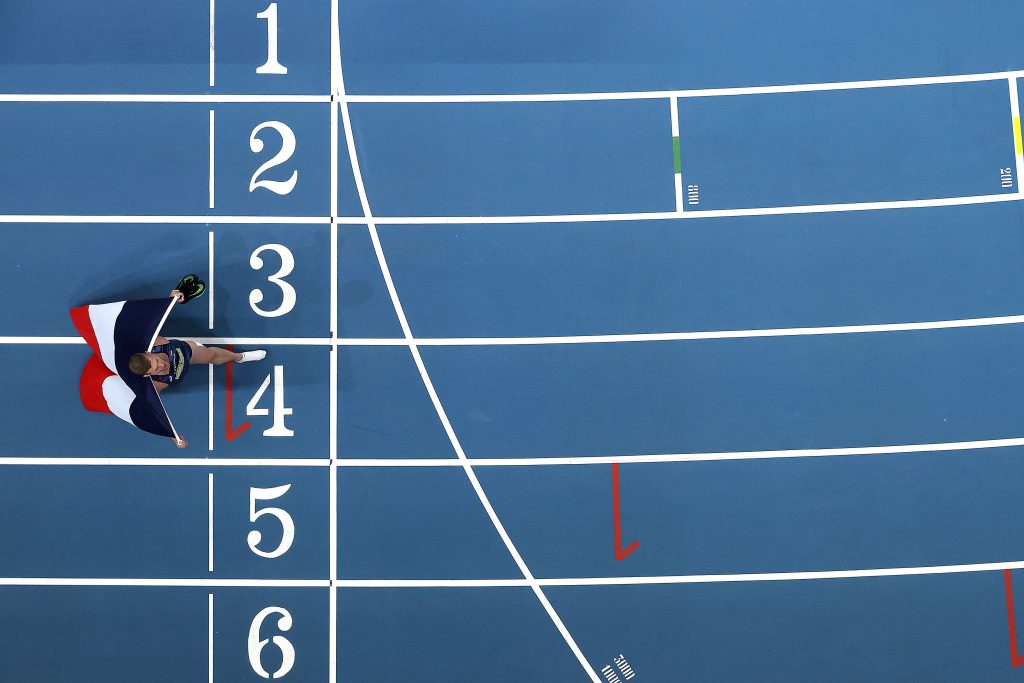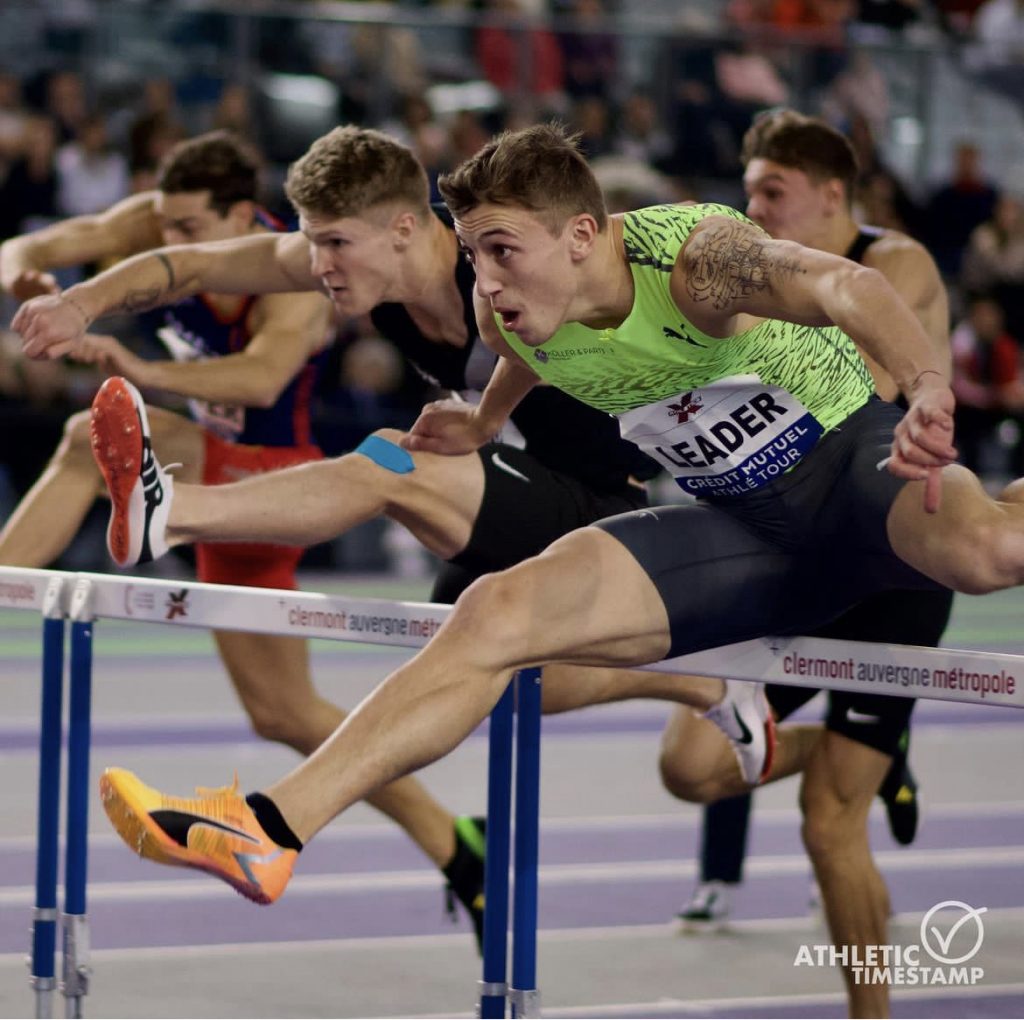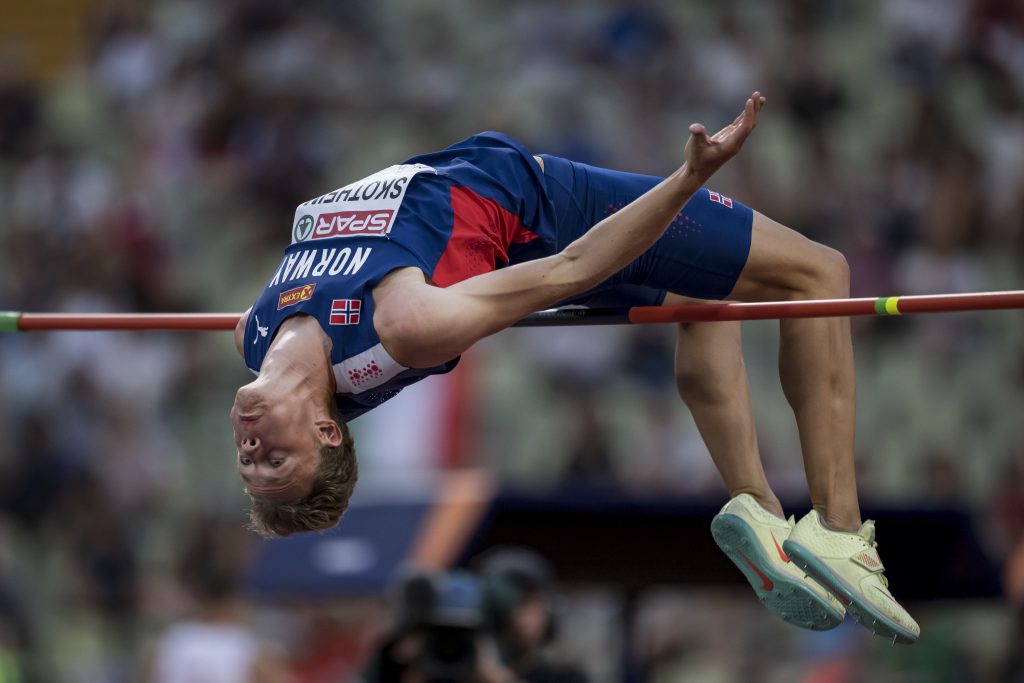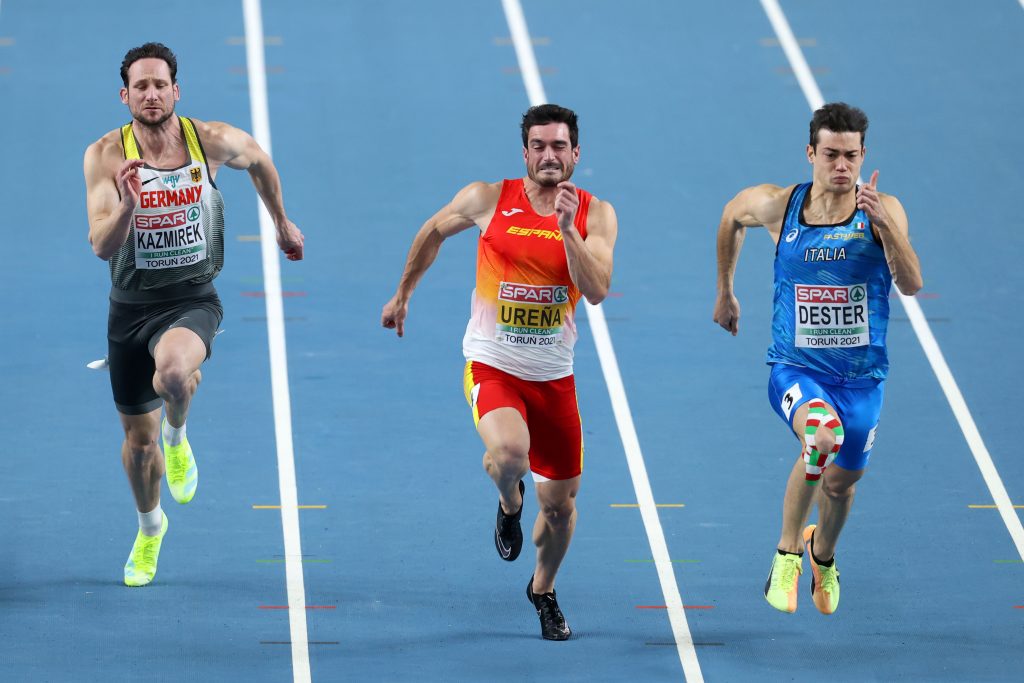The second preview of events this weekend in the Atakoy Arena in Istanbul: the men’s heptathlon.
Kevin Mayer is the obvious choice for favourite, and fully fit and in form he should theoretically have no trouble in retaining his title from Toruń 2021. However, Mayer is not as dominant in an indoor European field as he is outdoors. Furthermore he has yet to demonstrate in competition in 2023 that he is in the sort of shape to fend off other athletes over seven events.

There’s no question about Mayer’s speed this season, under 6.90s in his two 60m runs and sub-7.80s hurdles, or his shot (over 16m). But he was unable to get his long jump right during his guest appearance in Clermont Ferrand in January, and his highest vault so far this year is 5.03m. Indoors, Mayer’s weakest events – relatively speaking – are the long jump and high jump. So we’ll know at the end of Day 1 whether he’s vulnerable to serious challenge to his title. Mayer’s PB is the current European record 6479 – which, for world comparison purposes, was just 60 or so points more than Kyle Garland’s efforts – and his winning score from Toruń was 6392.
The natural challenge to Mayer is from Simon Ehammer (PB 6363), the Swiss silver medallist from the World Indoors in Belgrade last year. Ehammer can match Mayer over the 60m and 60mh, and they are of similar standard in the high jump. Moreover, with his improvement over pole vault in the last year, Ehammer should no longer haemorrhage points to Mayer in the Frenchman’s best event.

But Ehammer’s weapon is the long jump, and that’s where he can do the damage to Mayer. Combined events are often won and lost on athletes’ best events, and a powerhouse long jump – Ehammer broke Ashton Eaton’s world best with 8.26m in 2022 – could position the Swiss to beat Mayer if the latter has an average vault.
On the other hand, a middling long jump from the Swiss will hand the advantage to the world decathlon champion from that point forward. Ehammer’s best score this year has been 6292, limited by a modest long jump (a mere 7.85m, although he has jumped 7.98-8m in individual events) and a self-inflicted blow to the face in the pole vault.
Next on the world lists for 2023 is 20-year old Sander Skotheim. Skotheim started 2023 as the number two Norwegian of all time outdoors behind Markus Rooth (who qualified for Istanbul but is not competing), and as holder of the then indoor national record of 5965.

So far this year Skotheim has stepped up significantly over seven events, extending his NR into the big time with 6255 in Tallinn. Skotheim’s standout event is the high jump, where he sparred with Maicel Uibo at 2.15m in February and then went on to jump 2.20m in the individual event in Sweden. He’s also jumped 7.70m this season in the long jump, run a 2:37 PB in the 1000m, and brought his senior shot in line with what Ehammer has been able to achieve this year, throwing 14.48m. Skotheim cleared only 4.83m in the vault when he scored over 6200 points, but has been over 5m outdoors, so if can repeat his form from Tallinn there are more points, and potentially a medal, to come from the young Norwegian.
While this is Skotheim’s first European Indoors championships, there are few athletes who have had greater success at the competition than Spain’s Jorge Ureña: gold in 2019 in Glasgow and silver in 2017 and 2021. Indeed, it’s rumoured that the whole championships get cancelled if Jorge is not competing in the heptathlon.
Ureña has been on the side-lines since the Olympics with ongoing injury, but he staged a comeback of which Jacob Ingebrigtsen would be envious. Unable to qualify by rankings with only one eligible performance in the period, Ureña needed an outright qualification to make it to his fourth championships. He left nothing to chance, scoring within 76 points of his national record with 6173. Like Skotheim, Ureña has a killer 1000m so if all has not gone to plan for Mayer and Ehammer, and a medal is in sight with one event to go, Ureña will be tough to beat. Ureña’s high jump was the only event that was a little under his best last month.

The outsider in the field could be Ondřej Kopecký of the Czech Republic. The star of Roman Šebrle’s squad, Kopecký qualified for both the World Championships in Eugene and the European Championships in Munich in 2022, but didn’t start in either. Kopecký is more of an all-rounder in the heptathlon – he doesn’t have the blinding speed or outstanding jumps of the bigger names – but when he gets it right he gathers momentum to put together a decent score. This is, essentially, his major championships debut.
Estonia, home of the most 6000+ heptathlon scores per capita, has three men in the heptathlon field. They actually had four qualified, but Johannes Erm decided to focus on the US college circuit.
The 2018 World Indoor bronze medallist Maicel Uibo has been the best performer so far in 2023, scoring 6120 to finish second to Skotheim in Tallinn in February. Indoor heptathlon is generally viewed as being the domain of the fast men – see J Ureña – but as one of the slowest of world class decathletes Maicel Uibo challenges that assumption.
Uibo may only have run 7.16s and 8.19s for the 60m flat and hurdles respectively, but the 2018 World Indoor bronze medallist more than makes up for it with his superb vertical jumps. This year only Skotheim and Kyle Garland have jumped higher than Uibo (2.15m) among 6000+ athletes, and his 5.33m pole vault should see him up there with Mayer in the penultimate event. Uibo’s sprints limit his scoring potential indoors, but he is always in the mix for medals.
The most interesting athlete in the field Hans-Christian Hausenberg, the second Estonian, who qualifies thanks to his 6191 from March 2022. HCH is faster than Mayer in the 60m, and closing in on 8m behind Ehammer in the long jump. He can throw 14m plus and jump over 2m like all elite decathletes. He’s a sub 8s hurdler, and can match Uibo at 5.30m in the pole vault. Even with a 2:56 1000m, Hausenberg can get close to 6200 points at his best, and he was at his best when finishing fourth at the World Indoors last year in Belgrade. He hasn’t completed a multi since then, but has had good results in several of the individual events in which he has competed so far this year.
The third Estonian is Risto Lillemets, who finished fourth in Tallinn behind Skotheim and Uibo. Over 6000 at his best – and his best was 6055 to place fifth in Toruń – Lillemets has been about 100 points or so short of where he might want to be this year, just under 6000 points. While his vertical jumps have been strong so far in 2023, and he set a 1000m PB in Tallinn, he has points to collect across his sprints, long jump and shot. He has a strong final two events, and always has the capability to move up places in the 1000m.
Despite continuing to crank out 8000+ decathlons on demand every year, 32-year old Kai Kazmirek is still a relative newcomer to the European Indoors. He only participated in the competition for the first time in 2021 (where he was a DNF) and qualifies in 2023 as a beneficiary of the rankings system. His limited competitions in 2023 so far – 7.12m long jump and 8.08s hurdles – suggest that he won’t be getting near his 6238 best from Birmingham 2018, but Kazmirek is the German Duracell bunny – he just keeps going.
If it’s surprising that Kazmirek only participated in the European Indoors for the first time in 2021, then it’s even more surprising that his teammate Manuel Eitel has not yet been north of 6000 points.
Like Ureña, Eitel looks like he has been designed to compete indoors, and is one of the fastest men in the field. His PB of 5963 was set in January 2020 in Clermont Ferrand, where he came off a successful outdoor season finishing third to Niklas Kaul and Johannes Erm at the European U23s in Gävle.
But his progression came to a shuddering halt a few months later as the pandemic hit, and he missed the entire season in 2021 due to injury. Eitel got back on the wagon with a decathlon PB of 8193 when finishing 2nd in Decastar in 2022 and he is overdue a translation of that decathlon ability indoors to heptathlon.
The third German is Tim Nowak, for whom Istanbul will be the first competition of the year, given some early season injuries. Like Eitel, somewhat surprisingly Nowak has never scored over 6000 points. Nowak is not known for his speed, but he is all about the bounce – in the high jump, in the vault, and in a very decent shot. Nowak has been incredibly unlucky in recent years when he has been on track for big scores – in Ratingen 2021 when he slashed his hand in the vault en route to Olympic qualification, and in Munich 2022 when he unexpectedly collapsed after a super high jump. A first time over 6000 points would be a terrific start for 2023 for Nowak.
Dario Dester was the first Italian to score over 6000 points, and he is now the national record holder both indoors and out. In his first European Indoors in Toruń he finished seventh and improved that to sixth in his debut European outdoors in Munich. Dester finished 3rd in Clermont Ferrand in January, and has set personal bests in his 60m, hurdles and shot this season.
Thirty-one-year-old Marcus Nilsson enjoyed a renaissance year in 2023, winning in Arona before going on to add 200 points to his pre-2022 PB from 2018 and finish fourth in Munich. Despite having the fourth best decathlon score in the field behind Mayer, Uibo and Ehammer, he has the lowest heptathlon PB, 5866. Like Uibo he won’t set any records in the sprints, but the Swede has an excellent final two events, and is also a 16m putter. This season Nilsson has vaulted 5.15m and thrown over 15m, but withdrew from the heptathlon in Tallinn due to some back problems.
This preview began with a Frenchman, and it will finish with a Frenchman too.
The final man to qualify for Istanbul is Makenson Gletty of France. After scoring a PB of 5926 in Clermont Ferrand, he went onto score over 6000 points for the first time (6090) to win the French title in the same stadium in February. That follows a successful 2022 outdoor season where he exceeded 8000 for the first time and improved that to 8141 to finish fourth in Talence in September.
The combination of his score and his placing at the championships in the final few hours of the qualification period moved him up the rankings into the final place for Istanbul. Gletty’s indoor long jump and high jump bests are significantly lower than his outdoor bests, so he has plenty more points to come. He also has the fastest 1000m time of any of the athletes in the field in the last decade, so expect him to close the seven events in style.

